Share

Getting Lit With Linda
Thomas King's One Good Story, That One: Relationships & Stories
We develop relationships with people and communities as we share stories with them--in fact, that is a sign of our role or place within the community--but we don't get to demand to hear them, especially when we are not a part of that community. In this episode, Linda examines Thomas King's collection, One Good Story, That One (published by HarperCollins), and particularly the story of the same title, with this idea in mind. She considers his literary technique in relation to Van Gogh's Starry Night (you can check out the painting in this Van Gogh immersive exhibition) and then his other story and graphic novel, Borders. The latter is relevant in relation to the Takeway portion of the podcast, in which she interviews her former student Darrin Prine about the genre. Darrin introduced her to Spice & Wolf (by Isuna Hasekura, with illustrations by Jū Ayakura), and in this section, he also makes reference to Goblin Slayer (by Kumo Kagyu), Watchmen (by Alan Moore and Dave Gibbon), Middlewest (by Skottie Young and Jorge Corona), and Full Metal Alchemist (by Hiromu Arakawa).
More episodes
View all episodes
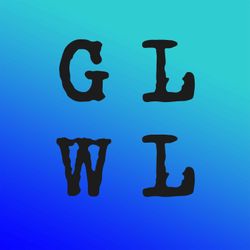
81. Revisioning the Three Rs - Michaela Di Cesare's Successions
48:30||Season 6, Ep. 81In this episode, Linda revisits and revisions the three “Rs” – reading, writing, and arithmetic – to reformulate a new triad. Why? Because, in her interview with Michaela Di Cesare about her play Successions, Linda learns more about Anthony, one of the main characters, and his disorder, known as prosopagnosia. Di Cesare explains that she thought of this disorder as a means of representing how patriarchal culture is often blind to women and to their needs. Anthony is literally unable to recognize women’s faces, unable to read their particularities and individual and very human traits. From this point, Linda develops a broader metaphor, beginning with considerations of literacy (see CBC’s recent assessment) to the need to recalibrate our critical reading apparatus – and then Maia Harris suggests Elaine Castillo’s How To Read Now. And that sets the stage for the interview. If you’d like to see one of Di Cesare’s current plays, Mickey & Joe (Good. Bad. Ugly. Dirty) is set to open at the Mirella & Lino Saputo Theatre from May 17-25 2025. Executive Producer: Linda Morra; Associate Producer: Maia Harris; Sound Producer: James Healey; Music by Raphael Krux ("The Madness of Linda") and Kevin MacLeod ("Natural Vibes").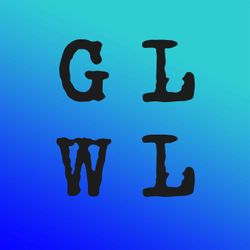
80. "Now is the Time that Artists Must Get to Work" - Zilla Jones' The World So Wide
42:26||Season 6, Ep. 80As a result of Zilla Jones’ The World So Wide, slated for publication with Cormorant Books on April 26, 2025, Linda reflects on opera (specifically Verdi’s La Forza Del Destino) – historically an elitist art form, but one that Felicity Alexander, the protagonist of Jones’ novel, in part challenges and overcomes through the very successes of her career. The trajectory of that career takes a darker turn when she finds herself in Grenada during the 1983 American invasion of that country – not an untimely revisioning of history in view of the current American political situation (27:40; 28:50).Linda also speaks about Verdi’s La forza del destino with Renata Tibaldi as Leonore and her father's love for opera (2:15), before she turns to the interview with Zilla Jones to speak about the following:Opera’s potential as an artform vs. its polarizing, and its elitism as art form (3:20; 12:30)Arts vs. politics (13:30)Sara Ahmed’s What’s the Use? (5:00; 6:15)Of what use is art in a time like this? (6:00; 31:45)Shani Mootoo (Season 3, Episode 6, 6:00)Decolonization and racial politics (12:15)The novel as a colonial construct (16:15)Dionne Brand, Salvaging the Wreck (16:03)Robinson Crusoe (16:15)Felicity as mixed-race heroine (17:30; 33:20)Kathleen Battle (18:46; 19:00)Grenada (history of, 20:45, and its “Revo,” 23:10; Red Sky Revolution, 23.20)Jones' research for the novel (24:35)The history of the Panama Canal (27:40)Toni Morrison (31:50)Gender and racialized motherhood (34:10)Felicity (naming of) (39:30)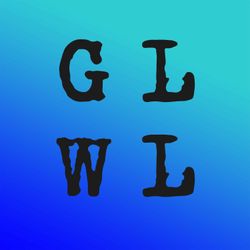
79. What We Oughta Know ... About Powerful, Internationally-Recognized & Accomplished Women
49:12||Season 6, Ep. 79In this first episode of Season 6 of Getting Lit With Linda, the host – Linda Morra – begins with a few important announcements: GLWL is now being supported by the Canada Council for the Arts! With that support, we have a "special" season that we're calling GETTING LIT GOES GLOBAL. It means we are emphasizing books or topics that take on international proportions or have international repercussions.Getting Lit With Linda will now also feature an annual prize – more of that in future episodes. And we have a new team on board, featuring Maia Harris (Associate Producer), James Healey (Sound Producer), Aki Barabadi (Marketing Consultant), and Raphael Krux (Music).Linda begins her discussion with a consideration of Martha Nussbaum’s Anger and Forgiveness, to mull over what to do with our anger (and specifically feminist anger, 21:00). Her guest, Andrea Warner points the way in her fresh and accessible book, We Oughta Know. Warner tells us what we should know, but don’t – that is, she tells us about how much the women she is examining – Celine Dion, Shania Twain, Alanis Morissette, and Sarah McLachlan -- did to work past gendered biases in the music industry to achieve international fame. Warner reminds us that we need to understand and confront not just misogyny (18:00), and the male gaze (19:00), but also internalized misogyny (16:20), and that we ought to know is how to develop solidarity and love for all of us. And, even when we mess up, we need to remember we are all works in progress (16:40).Andrea Warner has her own podcast, Pop This!, and has published other books, including The Time of My Life, and Rise Up and Sing: Power, Protest, and Activism in Music. We also speak about the following:Sabrina Carpenter's Christmas special, A Nonsense Christmas Lisa Whittington Hill's Girls Interrupted: How Pop Culture is Failing Women (Vehicule Press) and gender inequality in music representation (15:00)Miss Piggy's anger (22.50)Celine Dion's VERY AWESOME CANARY YELLOW POWER SUIT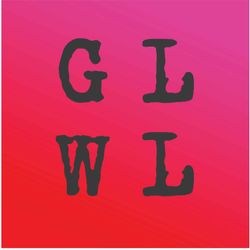
Season 6: Happy International Women's Day Wishes + Teaser
01:38||Season 6Happy International Women's Day - this is our Teaser for Season 6, in which a special guest joins Linda Morra to share our International Women's Day wishes with you, the listeners of Getting Lit With Linda!
78. The Nine Days Of/Before Christmas - and the Final One of Season 5
32:55||Season 5, Ep. 78n this 78th episode and the final one of season 5, Linda offers the “Nine Days of Christmas” with nine different book recommendations for the holidays. Who makes the cut? Well, we could say you need to listen to find out, but we want you to find the books easily, so here they are with their links:Alice Zorn’s Colours in her Hands (Freehand Books), Téa Mutonji’s Shut Up You’re Pretty (VS Books, Arsenal), Katherena Vermette’s Real Ones (Hamish Hamilton), Ian Williams', What I Mean to Say (Anansi), Sarah Polley's Run Towards the Danger: Confrontations with a Body of Memory (Penguin), Suzette Mayr’s The Sleeping Car Porter (Coach House Press), Derek Webster’s National Animal (Véhicule Press), Sue Goyette's A Different Species of Breathing (WLUP),and Bart Vautour’s The Truth About Facts (Invisible Publishing)Other References:Tanis MacDonaldErin Wunker, Season 61Judith ScottThe entire team at Geting Lit With Linda wishes you a wonderful, restful holiday - we will be back in the New Year with some important developments! Stay tuned!
77. "But I'm Holding a Pineapple" - An Open Letter to Ivan Coyote
14:57||Season 5, Ep. 77Linda writes an open letter to Ivan Coyote, in response to their book, Care Of: Letters, Connections, and Cures (published by McClelland & Stewart during the pandemic). This important volume of letters is extraordinary and, while we're no longer in the throes of a pandemic, it remains as relevant as ever. With references to WB Yeat's poem "The Second Coming" and an article by Anna Russell that appeared in The New Yorker, this episode highlights the vital contribution this book makes - and it's more than just a pineapple.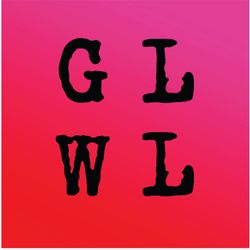
76. A Ghost Story Without Ghosts: Jenny Haysom's Keep
37:41||Season 5, Ep. 76In this episode, Linda converses with Jenny Haysom (2.48) about her novel Keep (published by Anansi). Featuring three main characters, the narrative is driven by the conflict that emerges when Harriet, an elderly poet, is diagnosed with the onset of dementia and must face selling her house -- and the two home stagers, Eleanor and Jacob, tasked with emptying it of its contents. Both Eleanor and Jacob are drawn into Harriet's world and the questions around what we keep, what we throw away, and what we value and why. It becomes clear why Haysom refers to this Victorian-esque novel as "a ghost story without ghosts."The discussion also turns toward Haysom's literary debut as a poet and her collection Dividing the Wayside (4.15, published by Palimpsest Press) and the difference between writing poetry and writing novels (4.32).
75. Haunted by a Colonial Past - Michel Jean's Qimmik
24:05||Season 5, Ep. 75A bilingual episode/un épisode bilingue. Linda opens with her delight about having won the Women in Podcasting Awards in Education - she effusively thanks her listeners!eWhat kinds of books haunt us and why? In this episode, Linda considers Eden Robinson's Monkey Beach and Jessica Johns' Bad Cree, but ultimately picks a book that thoroughly haunted her - Michel Jean's Qimmik (published by Libre Expression, not yet translated into English). Author of Kukum (House of Anansi) and editor of Amun:A Gathering of Indigenous Voices, Jean addresses one of the legacies of a colonial past not frequently addressed. Set in Nunavik, the novel traverses two time periods--that are connected in ways that are completely unexpected and deeply moving.Quels types de livres nous hantent et pourquoi ? Dans cet épisode, Linda choisit un livre qui l'a profondément hantée : Qimmik de Michel Jean (publié par Libre Expression, pas encore traduit en anglais). Auteur de Kukum (House of Anansi) et rédacteur en chef d'Amun:A Gathering of Indigenous Voices, Michel Jean aborde l'un des héritages d'un passé colonial qui n'est pas souvent traité. Situé au Nunavik, le roman traverse deux périodes qui sont reliées de façon tout à fait inattendue et profondément émouvante.
74. What I Was Meant to Do - An Interview with Amanda Peters
34:19||Season 5, Ep. 74Linda opens with a word of thanks to her listeners who voted--because she is now a Finalist for the Women in Podcasting Awards. This episode features an interview, which was live at Word on the Street in Toronto, with the writer of Mi'kmaq and settler descent, who published a novel, The Berry Pickers and, most recently, her short story collection, Waiting for the Long Night Moon (both published by published by Random House). It is a joyful and animated conversation, with an audience that was warm and supportive.